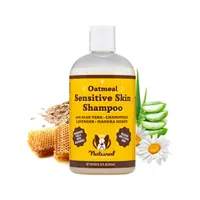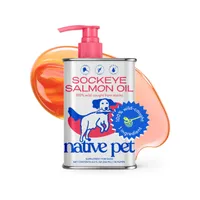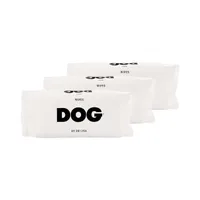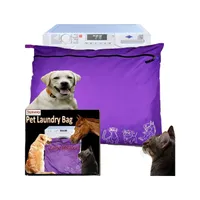4 simple solutions to help a dog with seasonal allergies, according to a vet
We asked a vet how to help a dog with seasonal allergies – here’s what she recommends
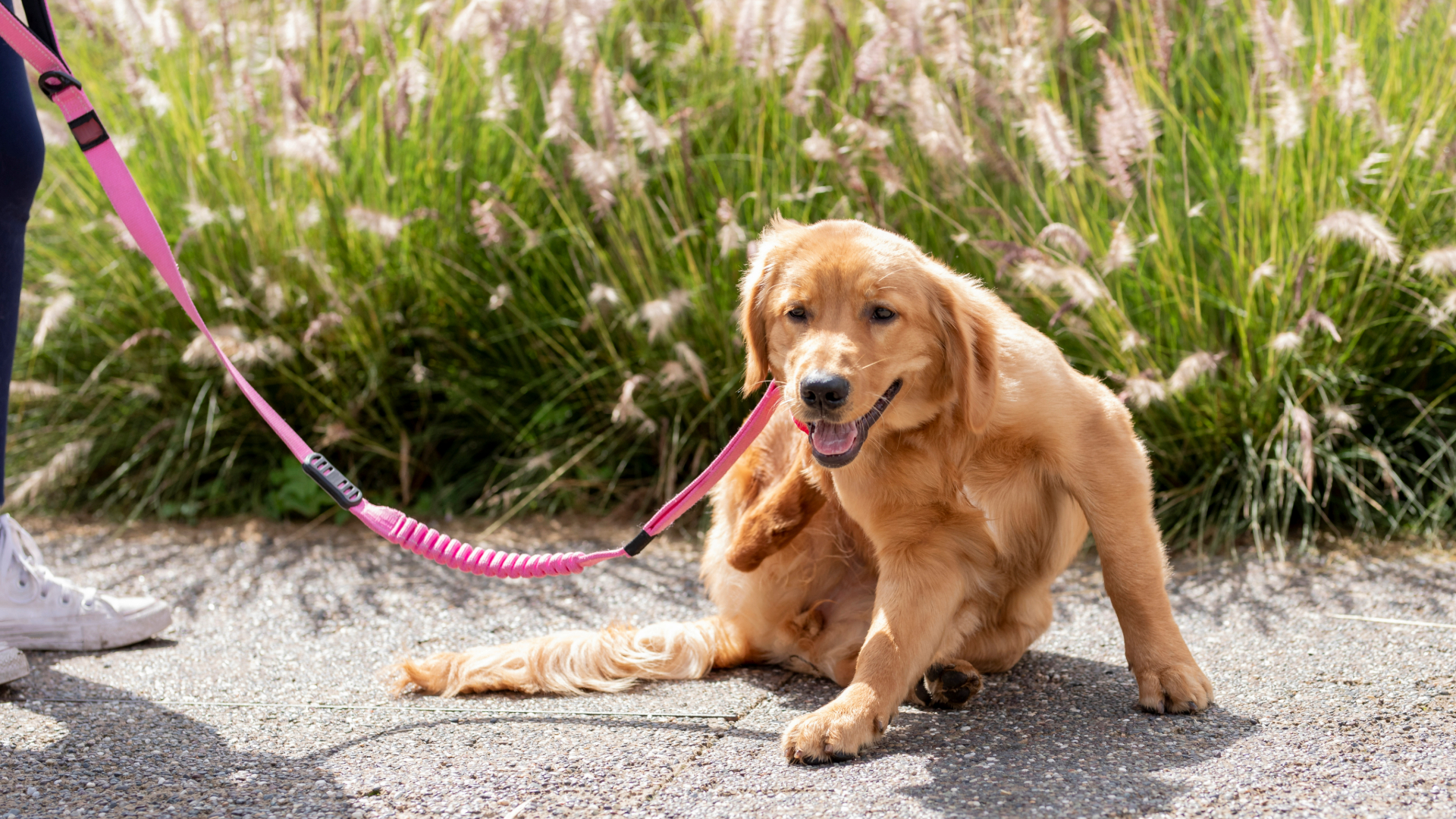
If you've noticed your dog experiencing symptoms like excessive scratching and licking, there's a chance they could have seasonal allergies. While it's always important to consult your vet rather than self-diagnosing, there are a few things you can do to help in the meantime – such as wiping down their paws after walks and keeping their skin barrier healthy.
Unfortunately, there's no one-size-fits-all solution for every dog – what works well for one might make no difference to another. That’s why it’s always best to work alongside an expert, who can provide a customized treatment plan to follow.
Vet Dr Rebecca MacMillan says: "Your vet will need to examine your pet and assess them for any complicating factors such as parasites or secondary yeast and bacterial infections. It is important that these are ruled out and treated before concentrating on the suspected allergy issue."
However, if you're curious about the type of treatments and solutions that a professional might offer, we've rounded up some options to treat seasonal allergies below. From soothing shampoo to omega-3 supplements – here are some over-the-counter products that could help a dog with allergies.
How to help a dog with seasonal allergies
1. Rinse when you get home
If your dog suffers from mild allergy symptoms, Dr MacMillan says it could be helpful to rinse their paws and belly after walks. While you won’t want to bathe them too frequently – as this can strip their skin of protective natural oils – it can still help remove irritating pollen. You might also want to try a soothing oatmeal or coconut oil-based shampoo.
Natural Dog Company Oatmeal Shampoo for Dogs | Amazon
Designed with sensitive skin in mind, this dog shampoo contains a hydrating blend of oatmeal and aloe vera – plus manuka honey for its antibacterial benefits.
2. Protect the skin barrier
By improving the health of your dog's skin barrier, you'll help protect them more effectively against allergens. To support their skin and coat condition, consider switching to a diet rich in omega-3 fatty acids or investing in a high-quality supplement, which also offers natural anti-inflammatory benefits.
Dr MacMillan says: "I always tell owners that any improvement may not be seen straight away, but could take up to six to eight weeks. There is no disadvantage to increasing your dog’s intake of essential fatty acids, so I recommend this to most owners of allergic pets."
Get the best advice, tips and top tech for your beloved Pets
Native Pet Salmon Oil for Dogs & Cats | Amazon
This single-ingredient supplement contains 100% wild-caught salmon oil, providing your dog with essential omega-3 fatty acids. Ethically sourced from Bristol Bay in Alaska, it’s rich in antioxidants and can be used as a topper on your pet’s regular food.
3. Wipe their paws on the go
As we mentioned previously, washing your dog's paws and belly can be a total game-changer for seasonal allergies. However, if you're on the go and don't have access to a bath straight away, you can use a pack of wipes to get the job done quickly.
Never use human wipes – they're not formulated for your dog's skin pH and can cause further irritation, especially if they contain fragrances and dyes. Dogs are prone to licking their paws, and some wipes contain harmful ingredients that are toxic if ingested.
Dog Wipes by Dr Lisa | Amazon
Vet-formulated with natural ingredients, these dog wipes help keep pollen at bay. Made from 100% compostable bamboo, they're good for the planet as well as your pooch.
4. Wash soft furnishings
Pollen can settle on surfaces in your home, so it's a good idea to regularly wash soft furnishings, like your dog's bed. You might want to consider drying it indoors or using a tumble dryer to avoid further pollen contamination on the line outside.
Pet Laundry Bag | Amazon
If the idea of dog hair clogging up your washing machine puts you off, we recommend using a pet laundry bag like this one. It comes in a range of sizes and helps protect both your clothes and your machine.
Dr MacMillan adds, "There are lots of other treatments that can also control symptoms of allergies. Monoclonal antibodies, glucocorticoids (‘steroids’), antihistamines, and various other licensed allergy medications can reduce itchiness and make your dog much more comfortable.
"Your vet will be able to discuss the pros and cons of these different therapies with you. Remember that each case is individual, and what might work well for one dog may not be so good for another."
While there may not be a cure for seasonal allergies, most can be managed with a vet’s guidance and a combination of treatments.
Looking for more expert advice? Read our vet's guide to skin allergies in dogs and food allergies in dogs. Or, if you're thinking about switching your pup's diet, read our top picks of the best dog food for allergies
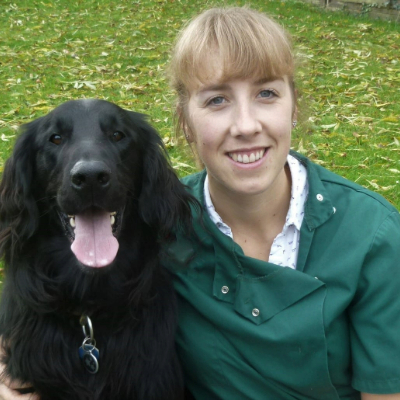
Rebecca is a veterinary surgeon who graduated from the Royal Veterinary College in London in 2009. She enjoys medicine in particular and she is proud to have achieved a BSAVA postgraduate certificate in small animal medicine (with commendation) from Nottingham Trent University in 2021.
Edited by Georgia Guerin and Alexis De Leaver.
This feature was last updated in May 2025 by Megan Milstead.

Megan is a Staff Writer at PetsRadar, covering features, reviews, deals, and buying guides. She has a wealth of experience caring for animals, having grown up with dogs, cats, horses, guinea pigs, and more throughout her life. She studied BA Journalism at the University of Westminster, where she specialized in lifestyle journalism and was editor of Smoke Radio’s lifestyle website. Megan works alongside qualified vets and accredited trainers to ensure you get the best advice possible. She is passionate about finding accurate and helpful answers to your pet-related questions.
